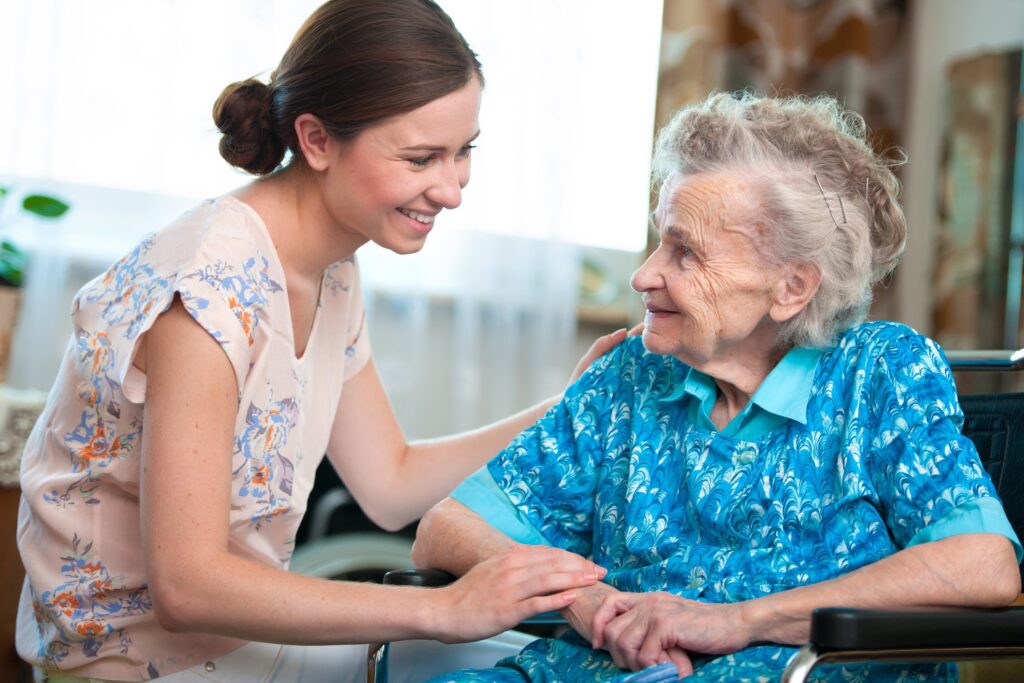When you hear the terms “home health” and “home care,” you might assume that they are only offered to people who are living in a house. However, these two services are commonly delivered in a variety of “homes,” including assisted living communities.
Age in Place
Most people want to age in place. A rapidly growing lifestyle option for seniors, aging in place means that you remain in the home of your choice for as long as you would like. If your loved one calls home the assisted living community they moved into last year, then there’s probably going to come a time when home health and home care services could help them stay “at home.”
Why? Assisted living communities are designed to empower seniors to maintain their independence while allowing for easy access to assistance, activities, and companionship. However, each state has different rules and regulations.
Personal Care
Many assisted living communities offer a base level of services that includes up to one hour per day of personal care. Right now your parent might only need help washing their hair and remembering to take their medications, so that hour of care suffices.
However, you want to make sure the community has a plan to handle increasing care needs. Otherwise, when they eventually require more help than the community can provide, they might be asked to move to a different unit in the same facility, to a skilled nursing facility, a memory care facility, or somewhere else entirely.
Fortunately, there are some communities that permit you to use home care to enable your parent to stay in their residence.
For example, in Massachusetts, regulations stipulate that assisted living residence staff can only provide one hour of personal care a day. But the residence may arrange for the provision of health services by a certified provider of ancillary health services. So as your mom needs more care, you can contract a home care agency to come into her assisted living apartment to help with bathing, using the bathroom, or getting ready for bed. Additional services in a facility can be up to 24 hours if needed.
Home care can help your loved one age in place in assisted living.
Skilled Services
Assisted living communities also offer differing levels of care.
For example, in Massachusetts, skilled nursing services may only be provided by a certified home health agency on a part-time or intermittent basis. Medical conditions requiring nursing services on a periodic, scheduled basis, such as injection of insulin or other drugs used routinely for maintenance therapy of a disease, may be furnished by a certified provider of ancillary health services.
If your mom suffers a fall and ends up in the hospital, the doctor might prescribe physical therapy. After a hospital stay, many are weak and more prone to falling. Failing to have therapy after hospitalization could potentially lead to a re-hospitalization due to an injury from a fall. So the community’s resident care director will help you coordinate additional services. These may include physical therapy, occupational therapy, and speech therapy.
Home health can also help your parent age in place in assisted living.
For an in-depth look at signs your loved one needs additional help or support in assisted living, how to pay for home health and home care services, and what to look for when hiring home health and home care services, download our Guide to Home Health & Home Care Services.
{{cta(’96fe4d06-f353-40a6-a53f-209055b81841′)}}

